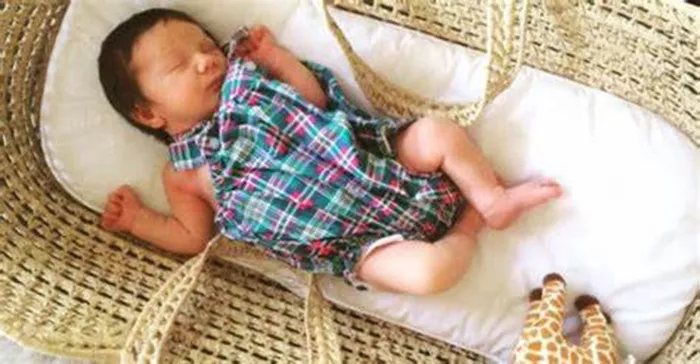Dressing a newborn can be challenging, especially in hot weather. Keeping your baby comfortable while ensuring safety is essential. In this article, we’ll explore practical tips for dressing your little one during those sweltering 90-degree days.
Understanding Newborn Comfort
Newborns have sensitive skin and are unable to regulate their body temperature effectively. This means they can easily become overheated or too cold. In hot weather, it’s crucial to choose clothing that helps your baby stay cool and comfortable.
Why Temperature Matters
Babies are more susceptible to heat-related illnesses than adults. Their small size means they can become overheated quickly. Signs of overheating include:
Flushed skin
Rapid breathing
Excessive sweating
Irritability
If you notice these signs, it’s important to cool your baby down immediately.
Choosing the Right Fabrics
When dressing a newborn in hot weather, the fabric of their clothing is key.
Opt for Breathable Materials
Cotton: Soft and breathable, cotton is a great choice. It allows air to circulate, keeping your baby cool.
Linen: This lightweight fabric is another excellent option. Linen wicks moisture away from the skin and dries quickly.
Bamboo: Eco-friendly and naturally breathable, bamboo fabric is soft against sensitive skin and helps regulate temperature.
Avoid Synthetic Fabrics
Stay away from materials like polyester and nylon. These fabrics trap heat and moisture, which can make your baby uncomfortable.
Dressing Tips for 90-Degree Weather
Now that you understand fabric choices, let’s dive into specific dressing tips for those hot days.
1. Keep it Simple
When dressing your newborn, less is more. Choose simple outfits that are easy to put on and take off.
Onesies: A short-sleeved or sleeveless onesie is a perfect base layer.
Lightweight Rompers: These can be comfortable and cute without adding too much bulk.
2. Layering Wisely
While it may seem counterintuitive, layering can be beneficial, even in hot weather.
Use Lightweight Layers: Consider a lightweight, breathable blanket or a muslin wrap for shading if you’re outdoors.
Keep Extra Layers Handy: Always have an extra layer on hand for air-conditioned environments where it may be cooler.
3. Protecting from the Sun
Sun exposure can be harmful to a newborn’s delicate skin.
UV-Protective Clothing: Some brands offer clothing designed to protect against UV rays. Look for items with a UPF rating.
Hats: A wide-brimmed hat can shield your baby’s face and neck from the sun. Ensure it fits snugly but not too tight.
Lightweight Blankets: If you’re outdoors, consider a lightweight blanket to cover your baby’s legs or arms.
4. Footwear Choices
While many parents may skip shoes, it’s important to protect your baby’s feet.
Socks: Lightweight cotton socks can help protect against sun exposure.
Baby Sandals: If you’re outside, soft baby sandals can be a good option, allowing airflow while keeping their feet safe.
Hydration is Key
In addition to dressing your newborn appropriately, hydration plays a crucial role in keeping them cool.
Breastfeeding and Formula
If you’re breastfeeding, continue to nurse your baby as needed. Breast milk helps keep them hydrated. For formula-fed babies, ensure they’re getting enough fluids.
Recognizing Signs of Dehydration
Be vigilant for signs of dehydration, such as:
Fewer wet diapers: If your baby has fewer than six wet diapers a day, it could indicate dehydration.
Dry mouth or lips: These are clear signs that your baby needs fluids.
Monitoring Your Baby’s Temperature
It’s important to keep an eye on your baby’s temperature throughout the day.
Ideal Temperature Range
A comfortable room temperature for a newborn is between 68°F and 72°F. In hot weather, monitor your baby’s body temperature regularly.
Use a Digital Thermometer
A digital thermometer is a reliable tool for checking your baby’s temperature. If their body temperature rises above 100.4°F, contact a pediatrician.
Creating a Comfortable Environment
Dressing your newborn appropriately is just one part of ensuring their comfort. The environment also plays a significant role.
Airflow and Ventilation
Ensure that the room where your baby sleeps is well-ventilated.
Fans: Use ceiling or box fans to promote airflow.
Open Windows: If it’s safe, keep windows open to let in a breeze.
Avoid Direct Sunlight
When outdoors, always seek shade for your newborn. Direct sunlight can raise their body temperature quickly.
Common Mistakes to Avoid
To help ensure your baby’s comfort, be mindful of these common mistakes.
Overdressing
It’s tempting to layer your baby for “just in case,” but this can lead to overheating. Stick to lightweight clothing and avoid bulky items.
Ignoring Signs of Discomfort
If your baby seems fussy, it’s essential to investigate. They may be too hot, too cold, or simply uncomfortable.
See Also: How To Clean Modern Cloth Nappies
Practical Outfit Ideas for 90-Degree Weather
To help you choose the right outfit, here are some practical ideas:
Casual Onesie Look
Clothing: Short-sleeved cotton onesie.
Accessories: Lightweight hat and cotton socks.
Footwear: Soft baby sandals (if outside).
Comfortable Romper
Clothing: Light, breathable romper.
Accessories: UV-protective hat and light blanket.
Footwear: Cotton socks or sandals.
Simple Layered Look
Clothing: Short-sleeved onesie with a lightweight cardigan.
Accessories: Lightweight hat and breathable muslin wrap for shade.
Footwear: Soft socks.
Conclusion
Dressing a newborn in 90-degree weather requires careful consideration. By choosing the right fabrics, keeping outfits simple, and monitoring your baby’s comfort, you can ensure they stay cool and happy. Always remember to hydrate your baby and create a comfortable environment for them. With these tips, you can navigate hot weather confidently, ensuring your newborn feels secure and comfortable.
Related topics:
- How Tight Should Diaper Tabs Be?
- What To Wear Under Nested Beans
- Infant Snowsuits: What To Look For In Fabric And Insulation

